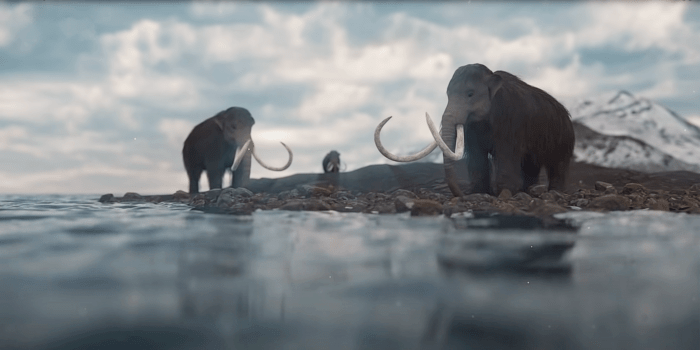(Molly Bruns, Headline USA) The latest in the line up of food abominations is a lab-grown meatball, allegedly spawned from DNA from a woolly mammoth.
According to the Daily Wire, Vow—an Australian company that specializes in synthetic meats—used the mammoth genome to create a long-lost appetizer that will reportedly help fight climate change.
The mammoth meatball was officially revealed at the NEMO science museum in Amsterdam.
Ernst Wolvetang, a researcher at the Australian Institute for Bioengineering at the University of Queensland, synthesized mammoth muscle tissue with myoglobin, elephant tissue and sheep myoblasts.
“It was ridiculously easy and fast,” Wolvetang told the Guardian. “We did this in a couple of weeks.”
Wolvetang revealed that their original plan was to create a dodo-bird chicken nugget, but the necessary DNA sequences do not exist.
Wolvetang explained that its also very likely no one will ever eat the mammoth meatball.
“We haven’t seen this protein for thousands of years,” Wolvetang said. “So we have no idea how our immune system would react when we eat it. But if we did it again, we could certainly do it in a way that would make it more palatable to regulatory bodies.”
Vow chose the mammoth as a marketing tool to push their climate-change message, despite the reason for their extinction being shrouded in mystery.
“We chose the woolly mammoth because it’s a symbol of diversity loss and a symbol of climate change,” Vow co-founder Tim Noakesmith said.
Meat spawned in labs is progressing towards regulatory approval via the Food and Drug Administration and the United States Department of Agriculture.
The FDA completed its first cell-grown human food market consultation for a synthetic chicken product from a company known as Upside Foods.
The review stated that the FDA had “no further questions” about the product. Upside Foods is waiting to hear back from the USDA for additional approval.
A Dallas-based startup, Colossal Biosciences, recently announced its own plans to “de-extinct” the dodo bird by replicating its genome sequences using DNA from its closest known surviving relatives.

